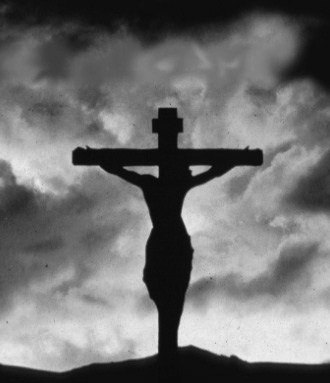
All His Suffering For Us
For our sake he made him to be sin who knew no sin, so that in him we might become the righteousness of God.
2 Cor. 5:21
Sometimes, I run across another blog post that worth posting in full. David Mathis with Desiring God Ministries asks a very pertinent question, “Jesus was offered wine twice while hanging on on that awful tree, why did he reject the first offer and accept the second”? The answer is beautiful and poignant.
By: David Mathis
Twice Jesus was offered wine while on the cross. He refused the first, but took the second. Why so?
The first time came in verse 23, “they offered him wine mixed with myrrh, but he did not take it.†William Lane explains,
According to an old tradition, respected women of Jerusalem provided a narcotic drink to those condemned to death in order to decrease their sensitivity to the excruciating pain . . . . When Jesus arrived at Golgotha he was offered . . . wine mixed with myrrh, but he refused it, choosing to endure with full consciousness the sufferings appointed for him (The Gospel of Mark, p. 564)
This first wine represented an offer to ease the pain, to opt for a small shortcut—albeit, not a major one in view of the terrible pain of the cross, but a little one nonetheless. But this offer Jesus refused, and in doing so, chose “to endure with full consciousness the sufferings appointed for him.â€
The second time came in verse 35. After some bystanders thought he was calling for Elijah, “someone ran and filled a sponge with sour wine, put it on a reed and gave it to him to drink, saying, ‘Wait, let us see whether Elijah will come to take him down.’†Lane comments,
A sour wine vinegar is mentioned in the OT as a refreshing drink (Numbers 6:13; Ruth 2:14), and in Greek and Roman literature as well it is a common beverage appreciated by laborers and soldiers because it relieved thirst more effectively than water and was inexpensive . . . . There are no examples of its use as a hostile gesture. The thought, then, is not of a corrosive vinegar offered as a cruel jest, but of a sour wine of the people. While the words “let us see if Elijah will come†express a doubtful expectation, the offer of the sip of wine was intended to keep Jesus conscious for as long as possible†(Ibid., 573-574).
So the first wine (mixed with myrrh) was designed to dull Jesus’ pain, to keep him from having to endure the cross with full consciousness. This wine he refused.
And the second (sour) wine was given to keep him “conscious for as long as possible,†and thus have the effect of prolonging his pain. This is the wine Jesus drank.
Other condemned criminals would have taken the first (to ease their torment) and passed on the second (so as not to prolong their horrific pain). But Jesus would take no shortcuts on the way to our redemption.
At the cross, he drank the wine of his Father’s wrath down to its very dregs, and he did so for us—that we might enjoy the wine of his Father’s love, join him at the Marriage Supper of the Lamb, and live redeemed forever in the glorious presence of the one who took no shortcuts in saving us.
HT: Desiring God









